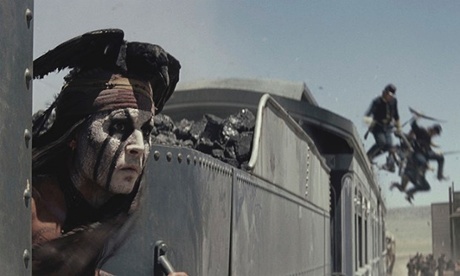
The hashtag #BoycottExodusMovie is currently trending on Twitter, as people express their outrage at the casting decisions for the new Ridley Scott biblical epic Exodus: Gods and Kings. With Christian Bale starring as Moses, Joel Edgerton as Ramses, and Aaron Paul as Joshua, critics have attacked the film for having a “whitewashed” cast that doesn’t reflect the true colours of ancient Egypt. But this ethnic blurring is nothing new – let’s look at some other questionable casting decisions in Hollywood …
Zoe Saldana – Nina Simone (in post-production)
Cynthia Mort’s Nina Simone biopic has been at the centre of a number of controversies over the past year, most notably due to the casting of Zoe Saldana. Saldana, an American of Dominican and Puerto-Rican descent, came in for considerable flak after taking the lead role, especially when photos were released of her wearing heavy dark makeup on set, that some criticised as being akin to “blackface”. A petition was even set up on Change.org requesting that Saldana be replaced with “an actress who actually looks like Nina Simone”.
The cast – Memoirs of a Geisha (2005)
Memoirs of a Geisha is an adaptation of Arthur Golden’s novel, the story of Chiyo Sakamoto, a young Japanese girl who becomes a geisha in the Hanamachi district. The geisha is a key symbolic figure in Japanese history and culture; it is not surprising then that there was considerable annoyance in Japan when the principal roles were given to actresses of Chinese descent: Zhang Ziyi, Gong Li and Michelle Yeoh. Considering the fact that there are many Japanese actresses in Japan’s thriving film industry, it was a puzzling decision.
Jake Gyllenhaal – Prince of Persia: Sands of Time (2010)
Regardless of what you think of Jake Gyllenhaal’s looks, you wouldn’t say he could pass for a Persian – beard or no beard. Not to mention the fact that he makes no effort at an accent in the film (perhaps that is for the best), making him as bad as Gemma Arterton, who plays his love-interest. It is fair to say that there are not a large number of well-known Persian-American actors in Hollywood. However, the negative response to Gyllenhall’s portrayal dogged reviews of the film and damaged its overall reception.
Johnny Depp – The Lone Ranger (2013)
Johnny Depp got comfortable with the long hair and hats that were part of his Jack Sparrow get-up in Pirates of the Caribbean, and invested this role with a similar look in The Lone Ranger. However, dressing up as a pirate and dressing up as a native American isn’t the same thing at all – if you’re not a five-year-old going to a fancy dress party, you should probably know better. Depp should: his great-grandmother supposedly had mostly Cherokee blood, but that hasn’t stopped native American groups from pointing out that he is still essentially a white actor playing an ethnic minority role. It probably doesn’t help that he wears so much makeup. Instead of being funny, Depp’s native American accent is borderline offensive and received criticism from various platforms for being racially and culturally insensitive.
The cast – 21 (2008)
Yet another full-cast faux pas, 21 garnered criticism for the decisions made from the lead role down. Based on true events, 21 was adapted from bestseller Bringing Down the House, Ben Mezrich’s study of blackjack-playing students from Massachusetts Institute of Technology. Mathematically gifted, the students develop a system that allows them to take on the casinos in Vegas. The real-life figures, from the professor to the students, were predominantly Asian-American. All but two of the cast in the film are white. To add insult to injury, the two token Asian-Americans are the joker and the loser of the group. Part of the problem, for sure, is that Mezrich’s book turned out to have changed names and invented characters. The producer said that he would have liked to have cast more Asian-Americans, but that there weren’t enough options with big enough reputations.

